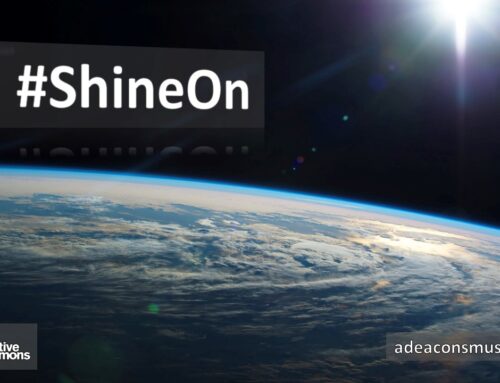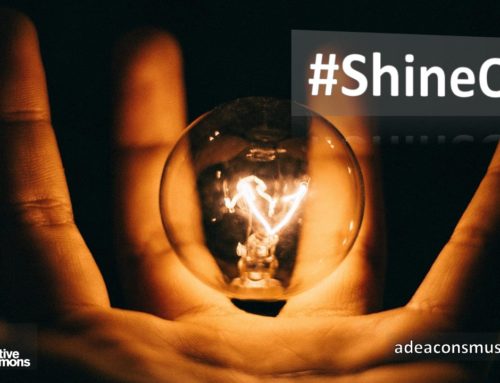Darkness cannot drive out darkness: only light can do that.
Hate cannot drive out hate: only love can do that.
Martin Luther King Jr.,
A Testament of Hope: The Essential Writings and Speeches
Okay I admit it … though some of you may already know this, I’m a Gen X-er through and through. I unfortunately fit into a lot of the truisms about my generation: I distrust institutions, I’d rather discern the worth of a person by what they do, not what they say, I’m resistant to committing for fear of disappointment and – when I do – I’m in, all in! Oh yeah, I also grew up listening to big haired ‘80s stars belt our ballads and wear pastel colours a lot, like a lot! And, as I prepared this final blog on Love in Advent, Tina Turner came rushing into my head!
Oh whats love got to do, got to do with it
What`s love but a second hand emotion
What`s love got to do, got to do with it
Who needs a heart
When a heart can be broken
̶ Tina Turner, What’s Love Got to do With It?
“Jesus was your king. Shut up.”
Intrigued, I asked,
“Say more … I’m currently reading about Christian Anarchists … any connexion?”
To which the reply was,
“I suppose you could say that it has something to do with christians (not all)
putting blind faith in a man they’ve never met.”
Okay, first of all, this Love thing is not some sentimentalised emotion – check out last year’s blog for more about that, Advent & Waiting for Crackpot Jesus. There might be aspects of sentiment that are emotional and make up this Love, but it’s much more than the neuro-chemicals that our brain releases. It’s more than lust or other ‘second hand emotions’ that can be experienced from a spectrum from caring for something to inappropriate obsession.
Second, the twitter discussion was absolutely right: blind faith, faith that removes reason from the equation, must always be challenged. One discipline that must be part of any faith journey is the comfort to ask awkward questions. Central to discipleship is the practice to sit in the truths that are difficult to speak and – here’s one of the kickers – to be comfortable in ambiguity or, as sometimes articulated from a Christian context, paradox.
Continuing with the twitter challenge in this in Advent Love blog following Jesus as King, Messiah, Rabbi, Friend, and any innumerable descriptors is in the doing, not the saying. What you believe about Jesus must translate into action in the world, in real life and not simply a place from which to pontificate and proselytise. Without the doing Jesus ends up simply becoming another idol, a symbol that no longer points beyond itself to a larger universal truth. For Christian this is sometimes articulated as the Trinity, but regardless of the words, without an actual response in the world, I’d echo, “Jesus was your king. Shut up.”
Finally, for this year’s set of Advent blogs, I’d suggest that the four themes of Advent can be considered a formula of sorts:
Hope -> faith in the possibility of something better. But this is more than simply an intellectual exercise, it is engaging in Hope as a discipline that leads to being Peace.
Peace -> that sense of groundedness in a human world that sometimes seems off-kilter, addicted to violence and dehumanises people. Peace that allows you to be fully present to the suffering around you without being overwhelmed by it. And in such places and moments there is Joy
Joy -> being Peace opens you to a sense of infinite gratitude. In this place of gratitude, you realise that the potentiality of Hope is not just otherworldly or metaphysical, but actually possible! In every experience, person, place and thing you see God and that this reality is filled with abundance!
If these three themes can be considered as disciplines, practices with which to engage in our everyday lives, we become Love. We become the very life-giving force that inspires dreamers and emboldens prophetesses. We live into the spark of the Divine that we are and, as the pending arrival of a child promises, anything is possible even in the midst of the tragedies that human perpetuate against one another. As you question, wrestle, celebrate & challenge, may this Advent season lead you to places by which you might awaken to the Love that you are.








Your reflections are most welcome!